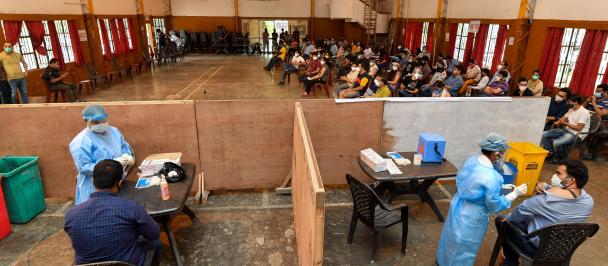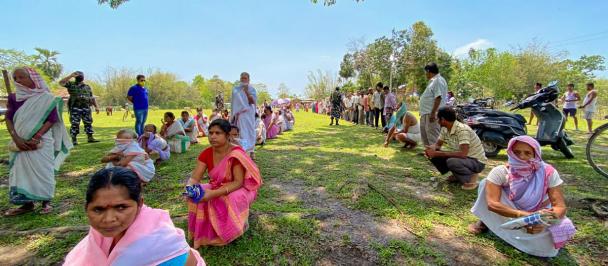The COVID-19 lockdown has put a brief pause to our assault on the environment and reminded us what it would be like to live in harmony with nature.
Working from home, I notice that India’s air pollution levels have come down dramatically, as has the pollution levels in the River Ganges. The pandemic has achieved in a few weeks what decades of clean-up campaigns failed to do. Wild animals are walking freely on empty roads. People in Saharanpur, Uttar Pradesh, can enjoy the majestic Himalayan peaks, which are more than 200 kilometres away. It’s a view that many haven’t seen for 30 years.
The pandemic has also reminded us, in the starkest possible way, of the inequality and vulnerability in our health, social protection systems and public services. The plight of the migrant workers is a clear indication that the growth process left out this segment of the economic workforce. There is every possibility that many of these workers and their families will fall into poverty.
In pre-COVID time, we flocked to restaurants, malls, and concert halls, and travelled freely. It was normal to commute to work every day. Three months into the crisis, we are learning how to keep social distance, with a mask on, and work from home. We are experiencing that digital technology is rapidly changing every aspect of our life.
Those who have less technology, however, are being left behind. A new generation of inequalities is being rapidly created because of technology. Women and girls are the worst affected by this rapidly expanding digital divide. According to an OECD report released in March 327 million fewer women than men have smartphones with internet connectivity, especially in developing countries in Asia and Africa.
The pandemic has unequivocally highlighted these growing tensions between people and nature, between the haves and the have-nots, and between people and technology. Our response to the crisis must reduce these tensions, so that the future will be more harmonious and inclusive.
Policy makers and the business community should come together to make this crisis an opportunity for India to introduce a more inclusive economy and society. In mid-May, the Government of India announced an economic stimulus package equivalent to US$265 billion. One of the most critical issues it could address is the protection of the 450 million informal workers, who have either lost their jobs, or are temporarily out of work.
Social protection can be set up in a way that it reaches everyone. A universal basic income could strengthen the government’s social protection system amidst the pandemic. It could reduce the transaction costs of managing the Pradhan Mantri Garib Kalyan Yojana, the largest social protection programme in India. COVID-19 has proved that addressing inequality is one of humanity’s biggest unfinished businesses.
The private sector can also take appropriate steps to protect the interests of informal workers—they are an asset. We are already hearing concerns how business cannot restart, unless the migrant workers return.
The lockdowns have shown that nature can still flourish if we give it the chance. For that, we need to accelerate the shift from a brown to green economy. More public funds and investment must go into businesses that are environment and climate sensitive. This will help in achieving our goals for sustainable growth as well as solving the air and water pollution crisis. Some scientists say COVID-19 may have originated with wildlife. Our over-encroachment into nature needs to be better regulated. We must live as part of nature, not be the ones exploiting it.
Digital solutions will be increasingly applied even more rapidly, particularly artificial intelligence. AI could improve health care, and economic development. However, diminished privacy, less human agency and accountability, and emerging skills required in job markets will pose significant risks, thus require mitigation measures and policies for responsible innovations. While technology is increasingly playing a predominant role in our life, human factors become even more important to the benefits of technology.
COVID-19 has given us a moment to pause, reflect, and recreate our way of life. There should be no repeat of pre-COVID times. We have no option but to adapt. We need to reset inequalities and create a more inclusive society. We need to make our lifestyle and development priorities more environment and climate sensitive.
I dearly miss people’s smiles, now hidden behind masks, and face-to-face contact. In these difficult times, empathy becomes more important than ever. Let us be kind and support each other, including nature and animals, so that we will come out of this much more resilient and compassionate.

 Locations
Locations

